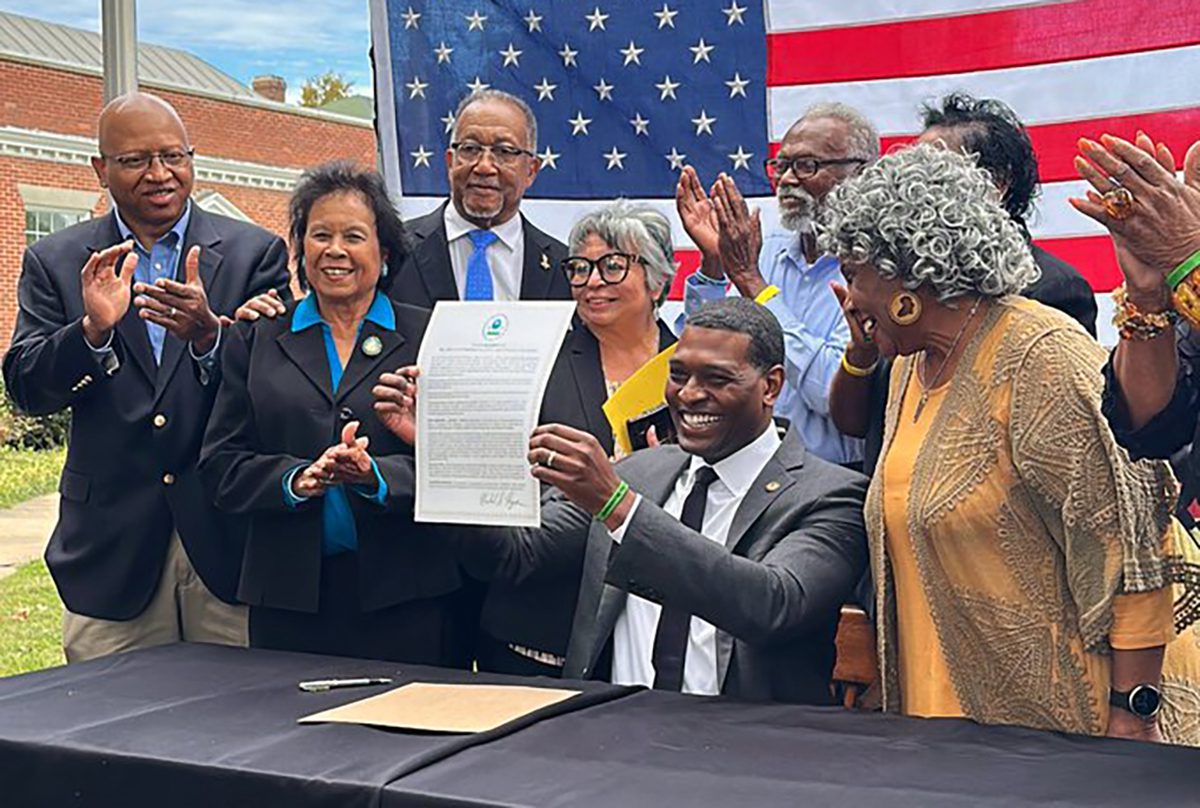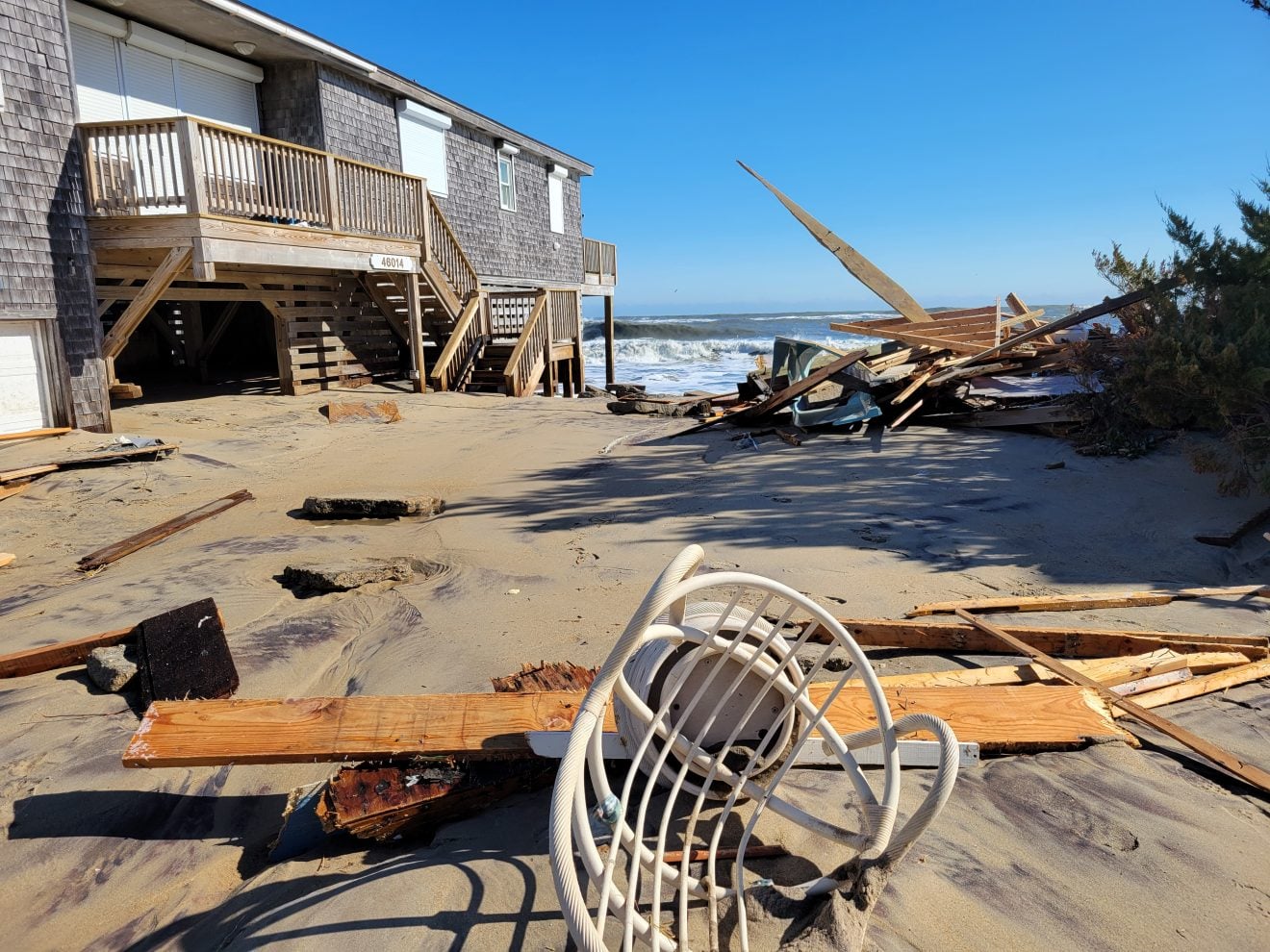
A small, predominantly Black community protesting a contaminated landfill in Warren County 40 years ago this month is credited with sparking the environmental justice movement.
Many who fought for themselves and their neighbors in Warren County, along with environmental justice and civil rights leaders gathered Saturday, Sept. 24, to hear Environmental Protection Agency Administrator Michael S. Regan announce a new national office charged with advancing environmental justice and civil rights.
Supporter Spotlight
Environmental justice means fair treatment, or that no group should carry a disproportionate share of the negative environmental consequences from industrial, governmental and commercial operations or policies, and meaningful involvement of all regardless of race, color, national origin, or income with respect to the development, implementation and enforcement of environmental laws, regulations and policies, according to the EPA.
The new Office of Environmental Justice and External Civil Rights will oversee a $3 billion climate and environmental justice grant program created under the Inflation Reduction Act. The office is to be led by a Senate-confirmed assistant administrator yet to be nominated.
“I could not be prouder or more excited to announce today that EPA is creating a new national office charged with advancing environmental justice and civil rights,” Regan said Saturday. “We are elevating environmental justice and external civil rights to the highest levels of EPA, placing this critical work on equal structural footing with the Office of Air, Office of Water, and all of EPA’s other national program offices.”
Regan previously served as the state Department of Environmental Quality secretary before the Biden-Harris administration appointed him EPA administrator.
The new office will dedicate more than 200 EPA staff to focus on environmental justice and civil rights. The staff will administer the environmental justice grants to “communities that have not had access, who have not had a seat at the table, who haven’t had the infrastructure in place to apply for these dollars, and who have been underserved for far too long,” Regan said.
Supporter Spotlight
Activist Dollie B. Burwell, a leader in the protest 40 years ago in Warren County, addressed the crowd Saturday before Regan made his announcement. She said the community just concluded a commemoration of the birth of the environmental justice movement there.
Raleigh-based Ward Transformer Co. paid a trucking company in the summer of 1978 to drive along rural North Carolina roads at night while discharging liquid contaminated with polychlorinated biphenyls, or PCBs, onto the shoulders of roads. PCBs are industrial products or chemicals. This Toxic Substance Control Act violation contaminated soil along 240 miles of roadside in 14 counties, according to the state archives.
The state, responsible for the cleanup, bought land from a distressed Warren County farmer in December 1978 to build a landfill to bury the toxic waste. The rural county had the highest percentage of African American residents in the state and was one of the poorest. Though civil rights activists and residents began protesting the landfill — around 500 were arrested – the landfill was still put in place. This protest marked the first time that opponents of a hazardous waste facility were detained for civil disobedience.
Burwell said Saturday many courageous and dedicated women, men and children of all races joined in their struggle. They stayed committed until the landfill was cleaned up and detoxified by the federal government in 2004.
Burwell told Regan they were grateful Warren County was chosen to make the announcement.
“You have acknowledged and recognized the work, the tremendous sacrifice and the legacy of Warren County citizens and the many leaders across this country that started the environmental justice movement and to continue to fight for environmental justice,” she said. “We hope that with this announcement and the policies that it will yield great fruit and that these communities and other communities throughout this nation will be able to accomplish more of their environmental justice goals such as culturally sensitive, environmental health studies.”
Professor La’Meshia Whittington, principal and CEO of Whittington & Staley Consulting Group, is deputy director for Advance Carolina and the North Carolina Black Alliance, co-convener of the NC Black & Brown Policy Network and member of the state’s Department of Environmental Quality’s Environmental Justice and Equity Advisory Board.
“Today we honor the labor of the birth of the environmental justice movement that gave us a banner under which we could unify and amplify our collective struggles to push back against the intentional targeting of our communities by dirty corporations. The same corporations who target our neighborhoods nationally are the same corporations causing global warming across the world,” she said. “Honoring the legacy and current impact of those leading the struggle while still being in their struggle is critical to solve the issues and save our nation. And, in turn, save the world because environmental justice is a global movement from our beautiful coastlines, to the scenic mountains, the powerful, rural and urban communities of the United States South and across the nation.”
The Rev. Dr. William J. Barber, co-chair of the Poor People’s Campaign, said it had been a long struggle and there remains a long way to go.
“We know that environmental injustice, environmental racism kills. Seven hundred people die every day in this country from poverty, 250,000 die every year from the effects of poverty as it relates to health care, the lack of wages and environmental injustice. We are being called to stop that form of policy murder,” he said.
Barber said it was time to ensure equal protection under the law, by a person with the full power of the government and $3 billion to protect minority and low-wealth communities that have suffered too long from corporations thinking nobody would stop them.
Gov. Roy Cooper applauded the effort.
“For too long, our underserved communities have been disproportionately impacted by climate change and unfair environmental impacts. That’s why we’re focused on moving North Carolina toward a more equitable, clean energy future for all, and this new office will help our state and country get there even sooner,” he said in a statement.
The Office of Environmental Justice and External Civil Rights Office was created by merging the Office of Environmental Justice, External Civil Rights Compliance Office, and Conflict Prevention and Resolution Center, existing programs at the agency.
Officials said the new office will improve and enhance the agency’s ability to infuse equity, civil rights, and environmental justice principles and priorities into all EPA practices, policies, and programs; support the fair treatment and meaningful involvement of all people with respect to the development, implementation and enforcement of environmental laws, regulations and policies regardless of race, color, national origin, or income; engage communities with environmental justice concerns and increase support for community-led action through grants and technical assistance; and enforce federal civil rights laws that, together, prohibit discrimination on the basis of race, color or national origin, sex, disability or age by applicants for and recipients of federal financial assistance from EPA.
Provide services and expertise in alternative dispute resolution, environmental conflict resolution, consensus-building, and collaborative problem solving.
Regan closed his comments Saturday with, “My brothers and sisters, this is essential work. It’s the work I came to this administration to do, and it’s the work that all of you have been demanding for generations. So, together, that is what we will do. Let’s go.”







